Additional Krk LNG Terminal Capacities Starting from 2025/2026
April the 18th, 2023 - Additional Krk LNG terminal capacities will begin being put into use as of the year 2025 or 2026 following the recent conclusion of a contract with the Norwegians.
As Poslovni Dnevnik/Marija Brnic writes, last year's project to increase the capacity of the Krk LNG terminal is finally starting to become concrete with the now concluded contract for the delivery of an additional gasification module, worth almost 23 million euros.
The contract signed in Omisalj by the president of LNG Hrvatska (Croatia) Hrvoje Krhen and the sales director of the Norwegian company Wartsila Gas Solutions, Kjell Ove Ulstein, will provide a new module, the installation of which will almost double the existing capacities of the Krk LNG terminal. With this additional module, the Krk LNG terminal's overall gasification capacities will rise to 700,000 cubic metres of gas, meaning that it will enable the delivery of 6.1 billion cubic metres annually.
The engagement of the Norwegian company Wartsila Gas Solutions is a continuation of Croatian-Norwegian cooperation because it is also the manufacturer of the existing gasification system on board LNG Hrvatska itself. The technology remains the same, which is why environmental impact studies aren't required, which will speed up the Krk LNG terminal capacity increase project.
The plan is that the production of the module will be completed in 22 months, and it should be installed in the summer of 2025, while additional capacities would be available at the beginning of the 2025/2026 gas year. When signing the contract, Minister of Economy Davor Filipovic emphasizsd that the gas network will be ready at the same time.
Plinacro is already working on the construction of an additional gas pipeline (Zlobin - Bosiljevo), and according to him, the works will start soon, and works on other sections and interconnections with neighbouring countries are also now expected. Filipovic pointed out that the government is also counting on co-financing from EU funds for all parts of this large project.
The President of the Plinacro Management Board, Ivica Arar, expects that the Zlobin - Bosiljevo gas pipeline should be completed in 2025. A construction permit has already been obtained for a new gas pipeline into neighbouring Slovenia, and an activity plan has just been agreed with the operator of the transport system in Slovenia.
Over the coming days, the sixtieth ship is expected to arrive in Omisalj since the Krk LNG terminal began operating, and in which more than 4.9 billion cubic metres of natural gas have been gasified and delivered to the network so far.
For more, check out our dedicated news section.
The Vegliot Dialect - The Krk Romance Language Extinct Since 1898
January the 23rd, 2023 - The Vegliot dialect, which is also often referred to as Vegliotic, is a now extinct Romance language once spoken on the island of Krk. The last speaker of the Vegliot dialect was Antonio Udina (Tuone Udaina), who passed away in June 1898. Little is known about the dialect named after the Italian name for Krk (Veglia).
We've explored many of the dialects, subdialects and indeed languages in their own right as some linguists consider them to be which are spoken across modern Croatia. From the Dubrovnik subdialect (Ragusan) in the extreme south of Dalmatia to Northwestern Kajkavian in areas like Zagorje, the ways in which people speak in this country deviate from what we know as standard Croatian language enormously. That goes without even mentioning much about old Dalmatian, Zaratin, once widely spoken in and around Zadar, Istriot, or Istro-Venetian.
A brief history of the Vegliot dialect
Of the now extinct languages once spoken on modern Croatian territory, we've looked into Istrian-Albanian, which became extinct in the nineteenth century after being introduced to parts of Istria by ethnic Albanians settled there by Venice who spoke in the Gheg (or Geg) variety of modern Albanian. Now we'll jump back into our linguistic time machine and head back into the island of Krk's past, during which the Vegliot dialect was spoken all the way until June 1898, when the last person to speak it died.
As mentioned above, the Vegliot dialect is named after the Italian name for Krk - Veglia, and its closest ''relative'' is believed to be Istro-Romanian, another Romance language once spoken more widely spoken across the Istrian peninsula, more precisely in the nothwestern parts near the Cicarija mountain range. There are two groups of speakers despite the fact that the language spoken by both is more or less absolutely identical, the Vlahi and the Cici, the former coming from the south side of the Ucka mountain, and the latter coming from the north side.
This language has been described as the smallest ethnolinguistic group in all of Europe, and without a lot more effort being put into preservation, the next few decades to come will almost certainly result in the complete extinction of the Istro-Romanians and their language.
A Western Italian dialect of Dalmatic, the Vegliot dialect was once spoken by a group of Morlachs (pastoralists) who were engaged in herding. As each of these individuals passed away, the last remaining was speaker was the aforementioned Antonio Udina, who was often affectionately called Burbur.
Antonio Udina (Tuone Udaina)
Udina was born in 1823 on the island of Krk, and died on June the 10th, 1898, losing his life in a road mine explosion and taking the Vegliot dialect with him into the beyond. Nicknamed Burbur, Udina is deemed the last person to fluently speak in the Vegliot dialect, but he was in actual fact not a native speaker of this language. He had learned the dialect (or language, for argument's sake) from his parents who both hailed from the island of Krk and spoke it as their native tongue.
Well known Italian linguist Matteo Bartoli wrote a paper on Dalmatian/Dalmatic language(s) way back in 1897, in what was to be the final full year of Udina's life. At that time, Udina had not spoken in that language for around twenty years, and he had also suffered dental issues so severe they had affected the movements of his mouth and as such he speech, and on top of that - he was also deaf.
Despite being deemed the last speaker of the Vegliot dialect, he is not considered a reliable source in regard to this language owing to his health issues. That said, after Udina was killed in a road mine explosion, the Vegliot dialect also died and is unlikely to ever be heard again.
For more on the Croatian language and the many dialects and subdialects spoken across this small but diverse country, make sure to check out our lifestyle section. An edition on language is published every Monday.
LNG Terminal to See Croatia Position Itself on New EU Energy Map
August the 19th, 2022 - The Republic of Croatia plans to position itself as one of the leaders on the new energy map of the European Union (EU), and this will be made possible by the National Energy Efficiency Action Plan for the period from 2022 to 2024 and the decision on the expansion of the LNG terminal on the island of Krk, which the Government made at a recently held session.
As Poslovni Dnevnik/Darko Bicak writes, to speak more specifically, the move regards the decision to build the Zlobin - Bosiljevo gas pipeline and increase the capacity of the LNG terminal on the island of Krk to 6.1 billion cubic metres of gas per year, with the total value of the investment reaching 180 million euros.
European Union money
As pointed out by the Minister of Economy and Sustainable Development Davor Filipovic, this is a strategic decision because it doubles the capacity of the LNG terminal on the island of Krk, and the construction of a new gas pipeline is underway.
"We're doing this in order to strengthen the security of gas supply across Croatia, as well as to position ourselves as a leade when talking about energy in this part of Europe. The total value of the investment stands at 180 million euros, of which 25 million euros will be invested in the expansion of LNG terminal's capacity, and 155 million euros in the expansion of the gas pipeline network," said Filipovic.
He added that European Union money will be used as much as possible in order to finance the investment, with the support of course from the state budget. Prime Minister Andrej Plenkovic also pointed out that this is a strategic and important decision for energy security and for the supply of gas to Croatia, apostrophising the importance of Plinacro's role, as well as the use of measures from the REPowerEU plan.
He assessed that Croatia is grafually becoming a regional energy hub when it comes to the high-quality use of terminals for liquefied natural gas. As an interesting fact, he singled out Germany, which doesn't yet have an LNG terminal of its own, and two such terminals, which should be built by 2024, will together have a capacity of 13 billion cubic metres of gas per year.
As Plenkovic himself stated, this means that one of Croatia's terminals is practically half of the capacity of Germany. The national energy efficiency action plan is extremely important in the context of the response to the current energy crisis and European efforts to reduce dependence on Russian gas following sanctions placed against the country for the invasion of Ukraine.
As explained by Minister Filipovic, in the period from 2014 to 2020, a decline in primary energy consumption was observed across the Republic of Croatia, as was a constant increase in final energy consumption. Such a trend was explained by the penetration of renewable energy sources and the improvement of the efficiency of production facilities in the production/transformation sector of energy, while in terms of immediate consumption, the effect of the implementation of energy efficiency measures could not neutralise the effect of economic trends and the increase in general consumption.
Back in pandemic-dominated 2020, Croatia achieved 18.7 percent lower primary energy consumption (364.6 PJ), i.e. 7.5 percent lower immediate energy consumption (269.5 PJ) compared to the target.
"The backbone of this plan is the provision of financial incentives for the energy renovation of buildings, especially residential ones, both from European Union sources and from the Environmental Protection and Energy Efficiency Fund," said Filipovic.
This plan will also be co-financed and implemented by European Union funds as well as the funds from various financial institutions. In addition to measures aimed at individual sectors and segments of energy consumption, the plan foresees the continuation of implementation of supporting measures, such as energy efficiency planning obligations at the local and regional level, energy audits, not to mention the energy certification of buildings and the proper promotion of energy services.
For more, make sure to check out our dedicated lifestyle section.
In Vino Veritas: Mini Wine Festival in Punat on Krk in July!
July 1, 2022 - The 'In Vino Veritas' wine festival in Punat on Krk Island will be held from July 15 to 17.
A weekend to enjoy! This is how you could describe the mini wine festival that will bring winemakers from Baranja, Erdut, and Ilok to the golden island of Krk from July 15 to 17 - and will undoubtedly attract visitors to the island.
The idea of the festival "IN VINO VERITAS" was created to strengthen friendly and business relations of winemakers from the areas of Baranja, Erdut, and Ilok, with an emphasis on the municipalities of Punat and Tovarnik - and business entities, i.e., restaurants and hotels from Krk Island. In its first edition, "IN VINO VERITAS" is a unique combination of "green" and "blue" Croatia, and no less important, it is an opportunity for both hosts and guests to get to know the richness of Croatia's wine offer and to have fun.
The festival's concept was born in 2019, but for already known reasons, it did not take place in 2020 or 2021. Therefore, this year's edition is eagerly awaited. The aspiration is for the festival to be a prototype for future similar events in Punat.
From Friday, July 15 - until Sunday, July 17, 2022, in the center of this beautiful place on Krk, the finest wines will be tasted. This time, smaller, family wineries from Baranja, Erdut, and Ilok were invited, a total of 6 of them, and were provided with free accommodation and exhibition spaces, i.e., promotional pours as well as wine sales in the main local square (Trg zahvalnosti), more precisely - houses where they will exhibit and sell wines. These are Vinarija Agris, Vinarija Kovats, Vina Papak, Vina Pinkert, Vina Siber and Vina/Podrum Szabo.
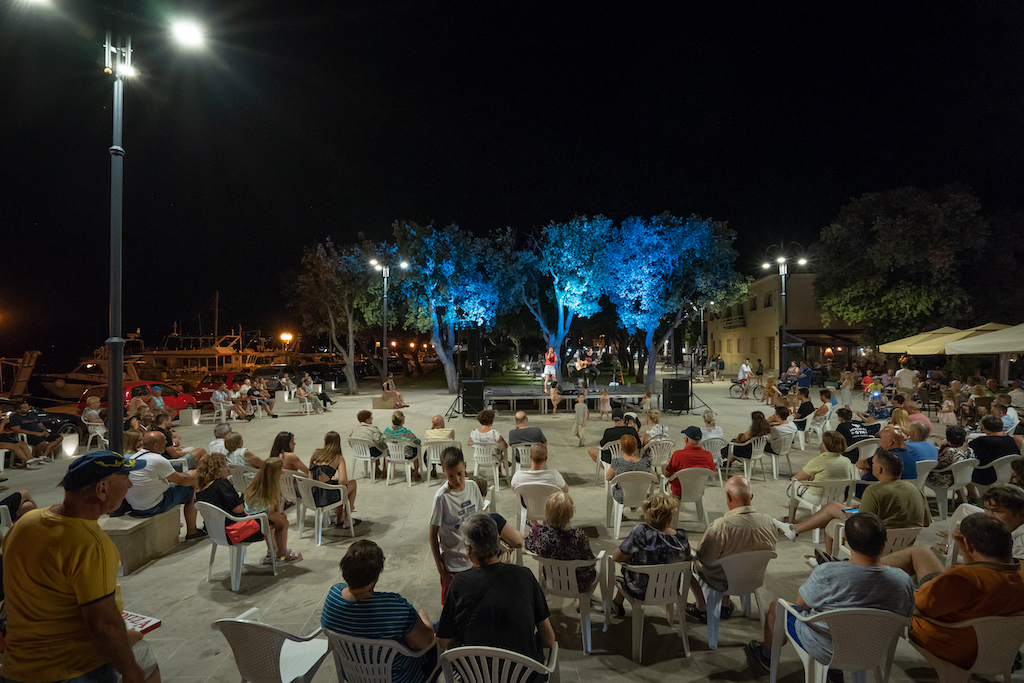
Endre Kubik from the Pinkert winery will also hold an educational workshop, "Wine terroir of Baranja," with a tasting of the best wines that this region has to offer.
The Punat Tourist Board is organizing vouchers for local and foreign visitors, along with wine tasting glasses. Visitors can buy the displayed and tasted wines directly from the winemaker.

The winemakers will also present their wines at a business dinner in the nearby BOCOON restaurant for a three-course gala dinner on Saturday evening (July 16), where local restaurateurs, media, and guests will be introduced to their wines.
PROGRAM
Friday, July 15
From 18:00 - 20:00 Trg zahvalnosti - "In vino veritas" wine festival
20:30 - Trg zahvalnosti - "In vino veritas" festival opening with the welcome of the host:
Branko Karabaić, director of TZO Punat
Sanja Muzaferija, co-organizer of the "In vino veritas" Festival
Daniela Strčić, Mayor of Punat Municipality,
from 21:00 - Trg zahvalnosti - entertainment program
Saturday, July 16
From 10 to 12 pm - Trg zahvalnosti - wine festival "In vino veritas"
12 pm - Toš Gallery, workshop: "Baranja Wine Terroir" and wine tasting, leader: Endre Kubik, PINKERT winery, Suza Baranje
From 18:00 to 22:00, Trg zahvalnosti - wine festival "In vino veritas"
20:30 - Restaurant BOCOON - dinner for guests (winemakers, restaurateurs, WOW members, media representatives, winemakers), music
21:00 - Park for entertainment program with A. Doko & V. Babin
Sunday, July 17
10 - 12 pm - Trg zahvalnosti - "In vino veritas" wine festival
For more, check out our lifestyle section.
Krk Island: Its Embark on Sustainability
June 18, 2022 - Croatia, home to many eco-enthusiasts, has made it its core aim to advocate the importance of going green and building initiatives that advise citizens to live an eco-friendly life. Now more than ever is the condition of the Earth important – as man-made climate change continues to be a focal threat to our planet. Therefore, Krk Island can be seen as a vast promoter of the reduction of greenhouse gas emissions in the Mediterranean region.
Located in the northern Adriatic Sea, at the centre of the Kvarner bay, the “Golden Island” does have a great deal to offer. By being considered one of the most attractive tourist destinations the Island’s mild Mediterranean climate and diverse nature become highly appealing to the public during the summertime. Moreover, its cultural heritage has given it the name of the “Cradle of Croatian culture” as it is abundant in all aspects of allurement.
With the introduction of the “Krk – Energy-independent and CO2-neutral Island” project, Croatia’s energy transition towards renewables continuously expands, as well as demonstrates that carbon neutrality can be profitable to other islands and the Croatian mainland. The wide installation of solar power is established to grant Krk the possibility of becoming energy self-sustainable and carbon-neutral by 2030. Thus, encouraging a positive experience for visitors and minimising the impact of tourism on the environment.
A goal for a climate-neutral Europe has been set by the future European Green Plan and the Mediterranean Strategy for Sustainable Development. According to the 10th Energy Conference of the Island of Krk, such an outcome is set to be achieved through “strengthening the economy with green technologies, creating a sustainable economy and reducing pollution”.
The project has been implemented by Eko Kvarner in cooperation with the European Asbestos Risk Association from Trieste, Italy, and Krk town. Additionally, seven of the local government units on the Island are included in the project with the objective of divulging a green economy as Croatia’s ultimate future.
Overall, it is known that buildings on the Island have been renovated in order to improve their energy efficiency and local inhabitants are permanently educated about energy-saving measures. So, do not miss the opportunity to visit Krk Island for its splendour and its progress towards sustainable development!
For more, check out our dedicated lifestyle section.
Zlarin Island Has Least Plastic, Most Waste Separation on Krk Island
June the 12th, 2022 - Zlarin island has the least plastic waste among the country's many inhabited islands, while the island of Krk does the best job when it comes to waste separation.
As Morski writes, the Sunce Association organised another study trip as part of the project entitled "For Plastic-Free Croatian Islands". This time, the employees of the Sunce Association, along with their project partners, visited the island with the least plastic, Zlarin island, and the island with the highest percentage of waste separation in all of Croatia, Krk.
The first day of the trip was a visit to Zlarin island, which launched the initiative to reduce plastic waste on that particular island four years ago.
''Through the initiative For Zlarin island without plastic, significant progress has been made in reducing pollution as a result of disposable plastic. The project was initially supported by the Tourist Board and the local mayor, and then slowly began to involve local traders, fishermen and other locals,'' said Katarina Gregov, a representative of the Zlarin Tourist Board.
The mere fact that there are no cars on Zlarin island is a sufficient motivator for the local community to continue striving to develop the concept of sustainable tourism by which visitors have the opportunity to experience the island as it always has been throughout time.
''Our goal is to make people aware of being more responsible consumers and not replacing one type of waste with another. In the beginning, of course, it wasn't easy, it's difficult to change people's already well established habits and patterns of behaviour. However, when you provide them with some education, and at the same time an acceptable and affordable alternative to disposable plastic, most of them eventually agree to it,'' said Katarina.
Krk - the island with the highest percentage of separated waste in all of Croatia
The second and third day of the trip saw the aforementioned Association head to the beautiful island of Krk, the most populated and economically developed island in the country, and also one of the Croatian leaders in the share of separation of useful raw materials from waste.
For many years, Krk has been implementing a system of a circular economy, which doesn't discard raw materials, but instead uses them for re-production. This reduces the consumption of limited natural resources (oil, wood, iron) and, consequently, waste.
Waste is collected door to door, and Krk's residents have bins in front of their houses in order to separate plastic, glass, paper, biowaste and mixed municipal waste themselves. However, the door-to-door waste collection system wasn't introduced in the old town due to the mayor's decision not to have bins located there, nor air conditioning, clotheslines, etc. That means that waste from the old town is collected outside the of the walls in special locations.
A large amount of separately-collected recyclable waste comes mixed, so this waste is first taken to a sorting plant where it's further sorted, baled and handed over for further recovery. Additional waste sorting is important when it comes to separating waste that doesn't belong there. In addition, waste sorting plants are important for the future self-financing of utility companies because they further reduce the cost of waste collection.
Krk is also proud of its modernly equipped composting plant, in which about six million kuna was invested two years ago for the modernisation of the plant. The space of the once open composting plant, after the investment, was covered and closed, and a device for machining the imported biowaste was installed in it. Produced compost is 1st class compost used for agricultural purposes, and users of Ponikve Krk's services receive one bag of that compost as a gift, while larger quantities are sold at a very affordable price and brought to the doorstep. Ponikve Krk also plans to produce third class compost from sludge from wastewater in the amount of 676 tonnes of compost per year.
For more, make sure to check out our dedicated lifestyle section.
DUBoak: Brand New Malinska Maritime Heritage Centre Opened
May the 29th, 2022 - The brand new DUBoak facility, a Malinska maritime heritage centre, has now opened its doors to the public and will showcase all that this area has to boast of when it comes to its rich maritime history and heritage.
It's not exactly news to anyone that the Republic of Croatia as a whole has an enormous tie to the sea, with the Adriatic part of the country drawing a long and extremely rich history based on the depth of its relationship with it. From food to trade, transport and defense, these ties continue to bind to this very day despite history having altered tremendously throughout time.
As Morski writes, the new Malinska maritime heritage centre (DUBoak) has been opened in Malinska on the popular island of Krk. The Malinska maritime heritage centre was built thanks to the European Union (EU) project Arca Adriatica, which deals with the protection, promotion and tourist valorization of the Adriatic's extremely extensive maritime heritage.
The rich maritime heritage, sailing culture, shipbuilding skills and coexistence of island people with the sea and forest were evoked in the facility worth around 11.5 million kuna, and the Lastavica Sports and Fishing Association and the Malinska Sailing Club also found their home there.
It was built on the place where the people of Dubas once busied themselves and unloaded wood from ox-carts, which were then loaded into bracers and camps headed for Rijeka and even across the Adriatic Sea to Venice, a place where a deep and strong connection between Dubasnica and the sea was formed.
Given the unbreakable connection between the sea and traditional boats on the coastal side and oak on the forest side, the name "DUBoak" is reminiscent of the deep sea, and also represents a play on words.
The conceptual design of the new Malinska maritime heritage centre and the very execution of the project comes signed by a talented team of architects, heritage interpreters, marketers and experts in the field of multimedia.
For more, make sure to check out our dedicated lifestyle section.
Krk Bridge Surface Roads to Finally be Completed Within 2 Weeks
May the 8th, 2022 - Precisely when will Krk bridge and its surface roads be completed? The issues faced in this regard by many drivers from both at home and from abroad will soon come to an end, it seems.
As Poslovni Dnevnik writes, the now two-year ordeal faced by drivers travelling across the Krk bridge should be over in a mere ten days at the latest, because the works on the road surface will be completed by the end of next week.
The works on Krk bridge kicked off as part of a larger comprehensive renovation which was started back in 2020, and vehicle traffic on the bridge will soon be released in both directions, as reported by Novi list.
This was confirmed by Sanjin Velebit Pesut, chief engineer at Hrvatske Autoceste/Croatian Motorways (HAC) who is in charge of the reconstruction project. Pesut said that the works on the reconstruction of parts of the surface will be completed twenty days before the agreed deadline, and the entire renovation project will end up being completed about four months earlier than expected.
The works on Krk bridge, which is used by countless drivers each and every year, with traffic becoming even more strong during the height of the summer tourist season, are worth an enormous 55 million kuna, including VAT.
They've been being carried out by a consortium of Croatian companies, including Sitolor, Spegra and Geotehnika. They began back in September 2020 at the large port, and last autumn, they continued at the small port of the bridge between the islands of Sveti Marko and Krk itself.
For more, make sure to check out our dedicated lifestyle section.
Dadathlon Festival Will Be Held on April 30th in Punat, Island of Krk!
April 13, 2022 - DaddyHood Europe has announced that the first-ever Dadathlon Festival will take place in Punat, on the island of Krk, on April 30. In its first edition, the family event seeks to connect dads and their children through sports and fun activities, and in this way raise awareness about the value of active fatherhood in the lives of children.
Almost exactly one year ago, in the town of Punat on the island of Krk, DaddyHood Europe organized the first Dadathlon race event. The strict measures to contain the coronavirus pandemic were still in force, so the event consisted of a symbolic opening ceremony that brought together 10 parents and their children, who participated in a race along the Punat promenade. Despite the cold weather and wind, the gathered families enjoyed a great day in which they could feel the exciting reward of being together with their children.
Last year's Daddyhood Dadathlon races took place in three stages:
- April 17th to 24th: Running with kids
- June 20th to 27th: Cycling with kids
- September 19th to 26th: Trekking with kids
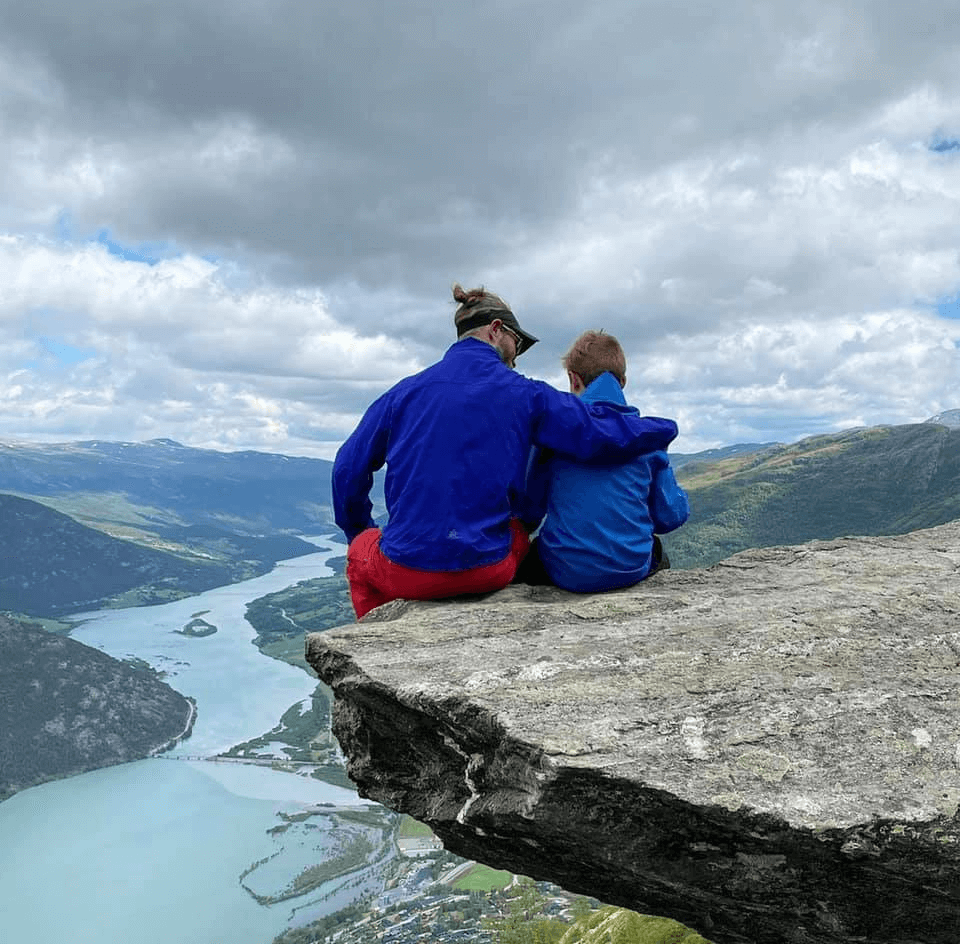
Last year, 500 dads applied for Dadathlon from 26 countries worldwide for the virtual competition.
The 2021 Daddyhood Dadathlon edition was held virtually and to allow flexibility to participants, each event was open for participation for one whole week. The races were conceived for individual teams (one father with his child/ren). It was possible to team up with other fathers and their children, to motivate each other and have even more fun, but each team member had to complete the full distance of the race. Participants were able to choose to take part in only one or two races but to complete the full Daddyhood Dadathlon, they needed to compete in all three races/disciplines.
However, it is worth noting that last year's Dadathlon festival actually took place all over the world, as 500 dads applied for Dadathlon from 26 countries worldwide for the virtual competition. Hundreds of parents shared their photos on Instagram and Facebook using the hashtag #DaddyHoodDadathlon and #DaddyHoodEurope to show off the good times they had exercising with their children during last year's competition.
TCN was at the opening of the first Dadathlon competition last year.
Now, this year, the Dadathlon festival will be celebrated in a big way and again in Punat. On this occasion, the Dadathlon Festival will feature local and diverse events for fathers, mothers, and their children in the town located southeast on the island of Krk. In addition, this year's event is approved by the EU Commission, following the successful application of Daddyhood Europe for funds from the European Union, which corroborates the exemplary organization, mission, and vision of the non-profit organization. The main event will take place on April 30 from 9:30 am in front of the Falkensteiner Hotel Park in Punat, on the island of Krk.
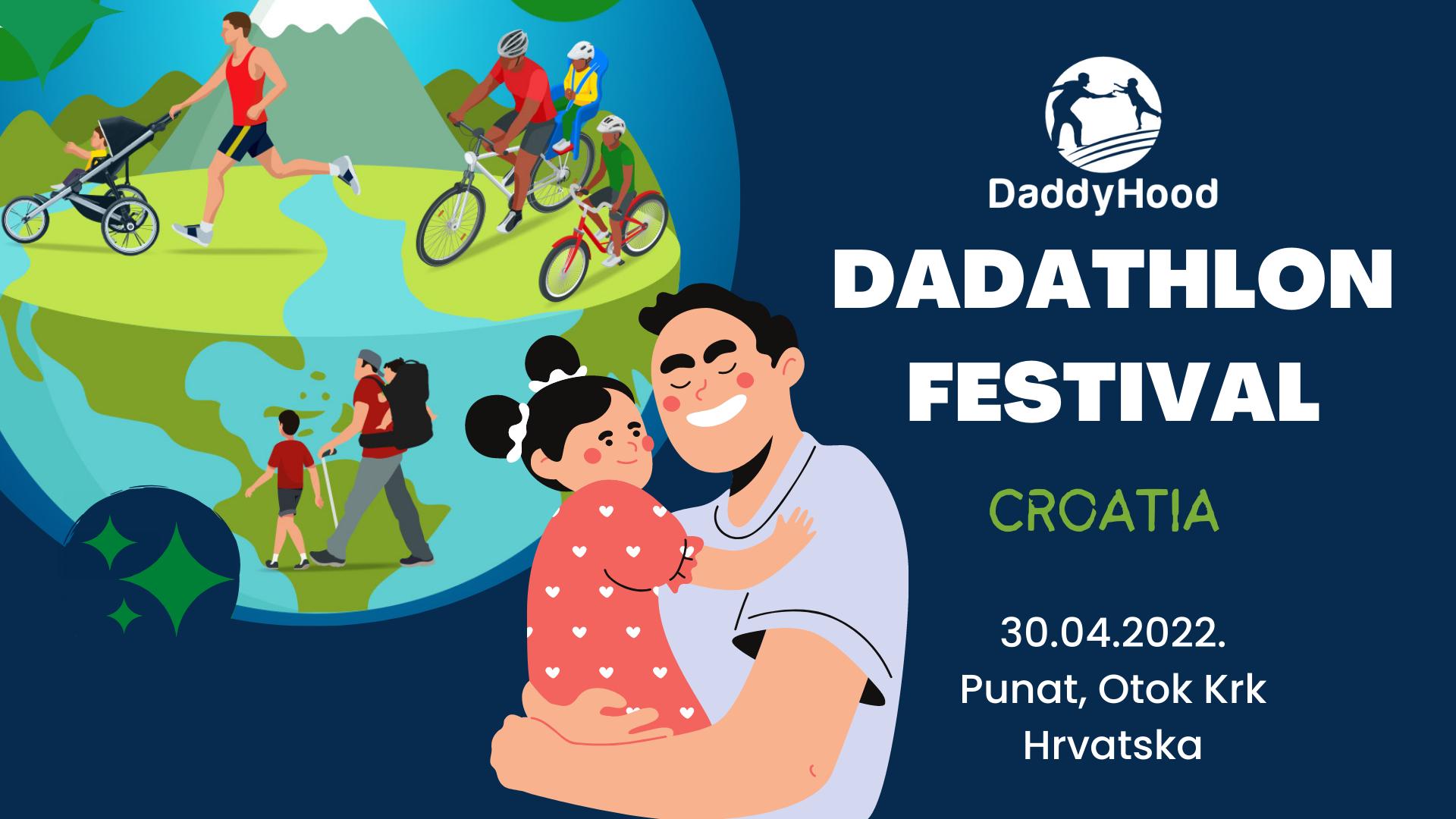
And who is behind the Dadathlon Festival? Daddyhood Europe is a nonprofit organization founded by Marino Manzoni from Croatia, and Thomas Pickelner from Sweden. Their goal is to raise awareness about the importance of active fatherhood and its role in the development of their children. According to Marino, who has organized both Dadathlon Festivals in his hometown of Punat, ''the main part of the festival is the Dadathlon RUN, a 3km race by the sea for dads and children, accompanied by many fun activities for dads, moms, and children''. The festival is held with the support of the Municipality and the Tourist Board of Punat and is co-financed by the Erasmus + program, which is why participation is completely free.
''The kids will be able to try their hand at various sports and creative activities such as archery, table tennis, athletics, football, and karate, or join robotics or music workshops. They will also have a theatrical play and an inflatable castle!'', added Marino.
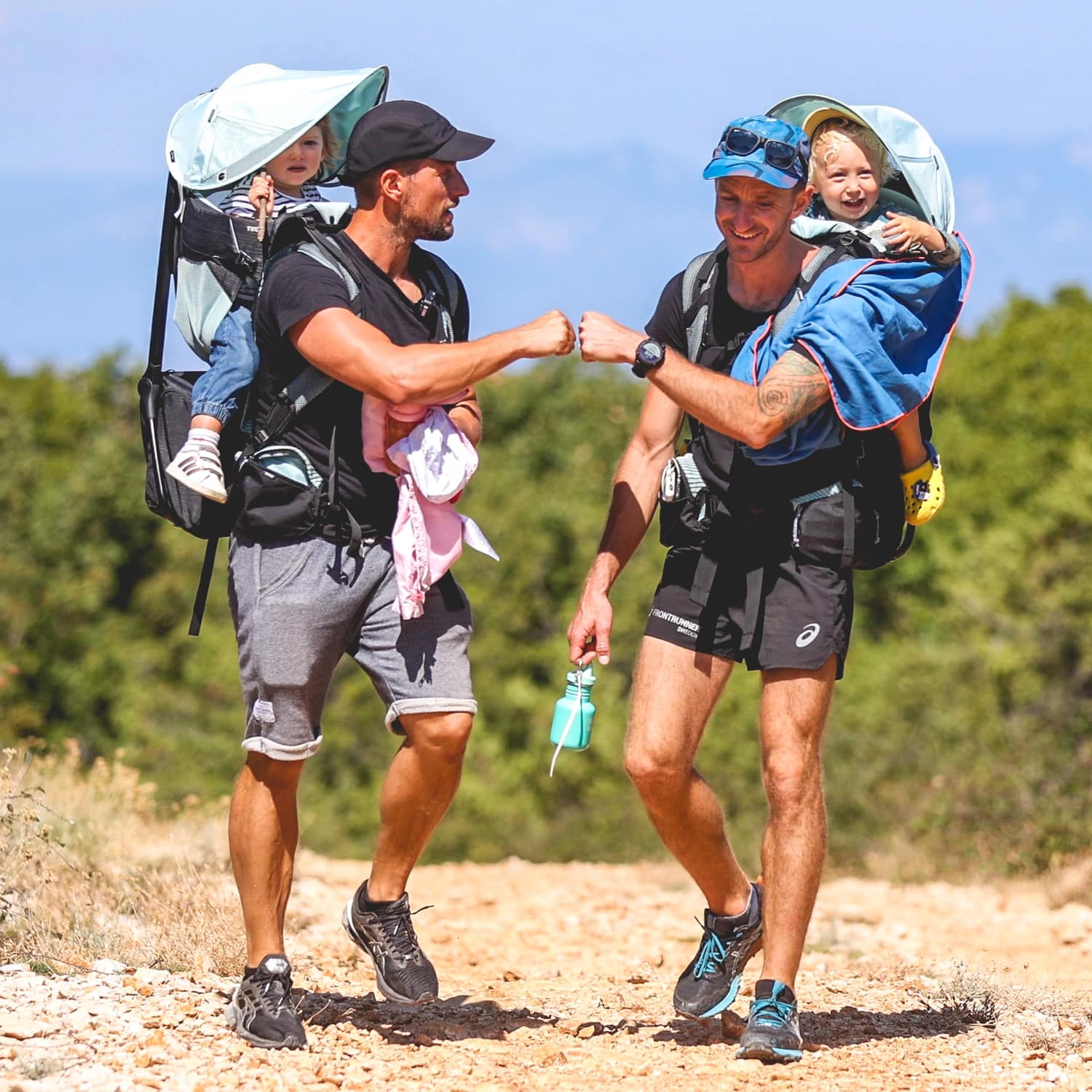
Marino Manzoni from Croatia, and Thomas Pickelner from Sweden, are the founders of DaddyHood Europe.
''And what about moms? "We haven't forgotten about moms who will be able to relax and attend fragrant salt workshops and enjoy Gin'o clock socializing and relaxing in the mom's corner''. Mom's corner, continuously throughout the day, will include:
- "Mom, how are you?" Talking about motherhood, by Nina Čikeš Stegić and Daria Mladenović.
- Presentation of the book "The Storyteller", by Martina Frka Milotić.
- Presentation of products and work of the association Women for the Island, by Jovana Čutul, Picolla Stella, and Miau couture
- Gin'o clock: socializing and relaxing with Kusshhh (Monika Kovač and Nives Matić)
- Workshop for making fragrant bath salts, with Almond natural cosmetics
- Mindfulness and breathing exercises, with Ivana Host.
In addition to the race and activities, this year's Dadathlon will feature a diverse gastronomic offer, and surely the highlight of the day will be the premiere of the documentary Daddyhood Adventure, produced by Marino and Thomas, which they recorded last year during their tour of the island of Krk with their 2-year-old children, and which seeks to raise awareness of the inevitable role of fathers in raising their children.
Daddyhood Adventure is a documentary made by DaddyHood Europe, in which Marino and Thomas explore not only the island of Krk, but also the importance of their role as parents in their children's lives.
And not only that, but this year's Dadathlon Festival also has a charitable side, and they will make boxes available for voluntary donations, which will be destined for the Krijesnica association, which provides support and help to children and families facing malicious childhood diseases.
To apply to the Dadathlon RUN race, you can register at this LINK.
To register your children in the workshops, send an email to This email address is being protected from spambots. You need JavaScript enabled to view it..
The complete program of this year's Dadathlon Festival is as follows:
09:30 - Gathering in front of the Falkensteiner Hotel Park in Punat.
10:00 - Opening of the festival and registration for the race for dads and children.
10:30 to 11:30 - Dadathlon RUN - 3km race by the sea.
12:00 to 12:30 - Telling stories for the youngest (Pčelica Nenica).
12:00 to 13:00 - Football for dads and children / Athletics (Atletski klub Krk).
14:00 to 14:45 - Archery 10-18 years (Maura Kal) / Robotics workshops 5-9 years (Stelaris).
15:00 to 15:45 - Sports workshop 4+ years (School of Sports ZVRK) / Music Workshop 4-7 years (Creative Krk).
16:00 to 16:45 - Karate 5-13 years (Karate Club Krk) / Majorettes 3-15 years (Majorettes of the island of Krk).
17:00 to 18:30 - Drama-stage workshop "Play with your body, animate your fingers" - Dad's picture book.
19:30 to 20:00 - End of the program and presentation of the film.
20:00 to 21:00 - Premiere of the documentary "Daddyhood Adventure".
Total Croatia News invites all dads from Croatia, from the Croatian diaspora, expats in Croatia, and from all over the world to participate in this year's Dadathlon Festival to spend valuable time with their children and family, have an unforgettable experience, and enjoy all that the wonderful island of Krk has to offer.
In case of additional questions, you can contact DaddyHood Europe via Facebook messenger or via email at This email address is being protected from spambots. You need JavaScript enabled to view it..
You can find more information on Dadathlon Festival's Facebook event.
For more Daddyhood Europe news and content, follow them on Facebook and Instagram.
For more about lifestyle in Croatia, visit our dedicated TCN page.
4 Islands MTB Race on Krk, Cres, Lošinj and Rab Becomes Part of Ironman Epic Series
April 12, 2022 - The 4 Islands MTB Race is a five-day mountain bike race whose primary goal is to promote mountain biking as a recreation, hobby, sport, and lifestyle.
This year differs from events in the past in that the Ironman group bought the Kvarner race and presented the "4 Islands MTB race" as part of their Epic series. Thus, Croatia and Kvarner will stand alongside Switzerland, Australia, New Zealand, Wales, Andorra, and South Africa. The additional value of this event is the promotion of the Croatian islands of Krk, Rab, Cres, and Lošinj as cycling destinations and improving cycling tourism as an alternative form of tourism in Croatia.
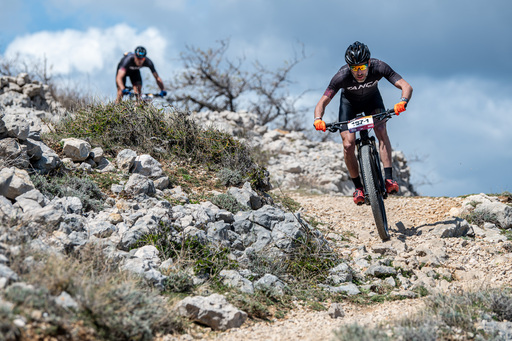
Vedran Metelko
In five days, the cyclists will cover 270 kilometers of trails and over 5,000 meters of total altitude. The race takes place every day on a different island, which is a demanding logistics and an unforgettable experience for competitors and companions. It gathers about 600 competitors from more than thirty countries worldwide, and thanks to the professional and intensive organization, participants can enjoy events in a family environment and concentrate only on their competition.
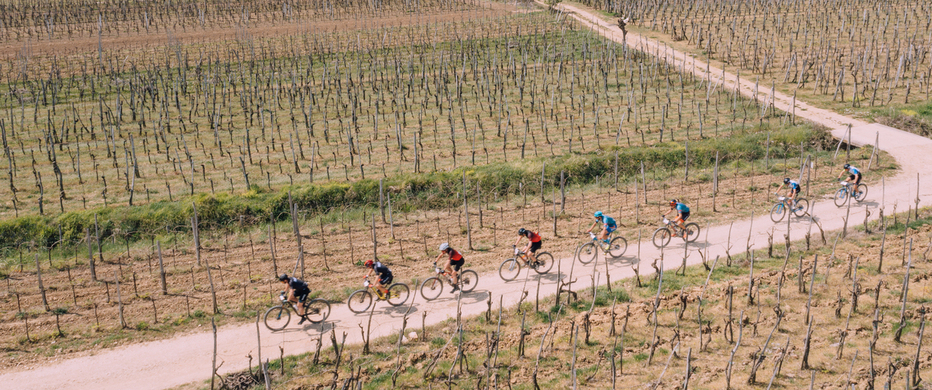
Ivan Sardi
Thanks to the top initiative of the hosts and their pleasant welcome, hard work of the organizing team, and excellent cooperation with partners, the synergy of sports and off-season tourism is achieved in Croatia, which is at its peak, and returning competitors have recognized this for several years. The race is held at the beginning of the cycling season, so it is conceptually arranged to extend the tourist season and open the cycling season of training and outdoor racing after winter.
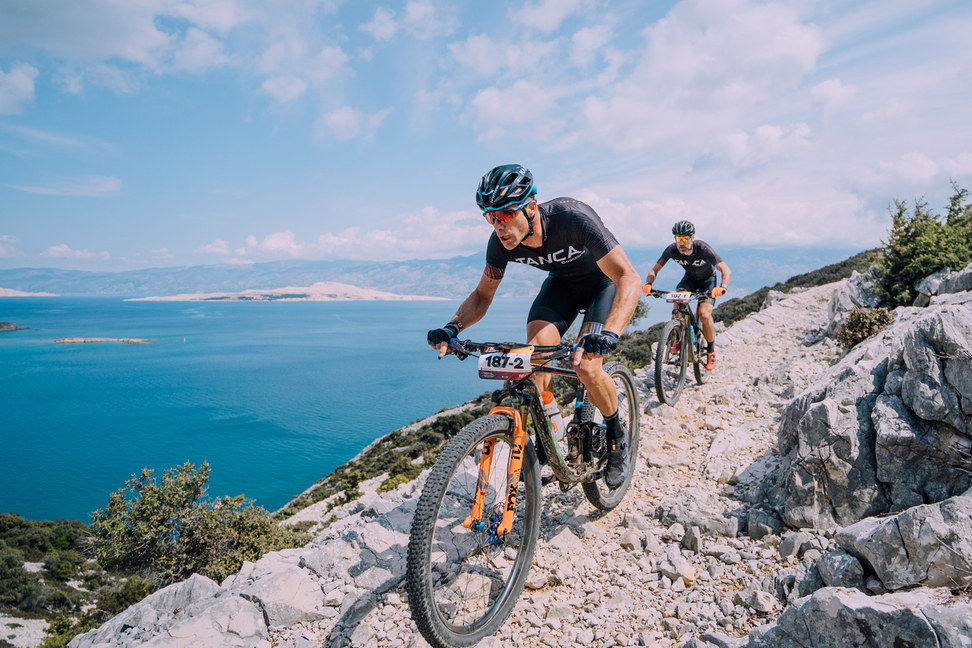
Ivan Sardi
It is possible to compete in several categories, thus enabling fair participation of competitors of different age groups and combinations. Furthermore, racing side by side with the professionals of this sport is something that makes this race and cycling itself exceptional. It is an amateur race side by side with professionals that allow the interaction of amateurs and lovers of the sport and their idols.
The project organizer, Tomislav Zobec, revealed that the vision of the project is to position the 4 Islands MTB stage race as one of the most recognizable stage mountain bike races in the world and achieve a sustainable project for the company and the local community.
"We want to promote mountain biking and provide users with a unique cycling experience in unique locations and become a race with the world's strongest names in the sport."
"We are delighted to participate in such an event because this is another opportunity to position ourselves as an important destination for cycling tourism. Both Baška and the island of Krk and the whole of Croatia are still insufficiently discovered pearls for tourists looking for adrenaline, rest, and great experiences of the destination. We have just all of that, and that is why we are big supporters of such events, and I hope that there will be more and more of them. It is an honor and pleasure to be a part of this beautiful and truly inspiring story," said Ivana Topic, the Baška Tourist Board director.
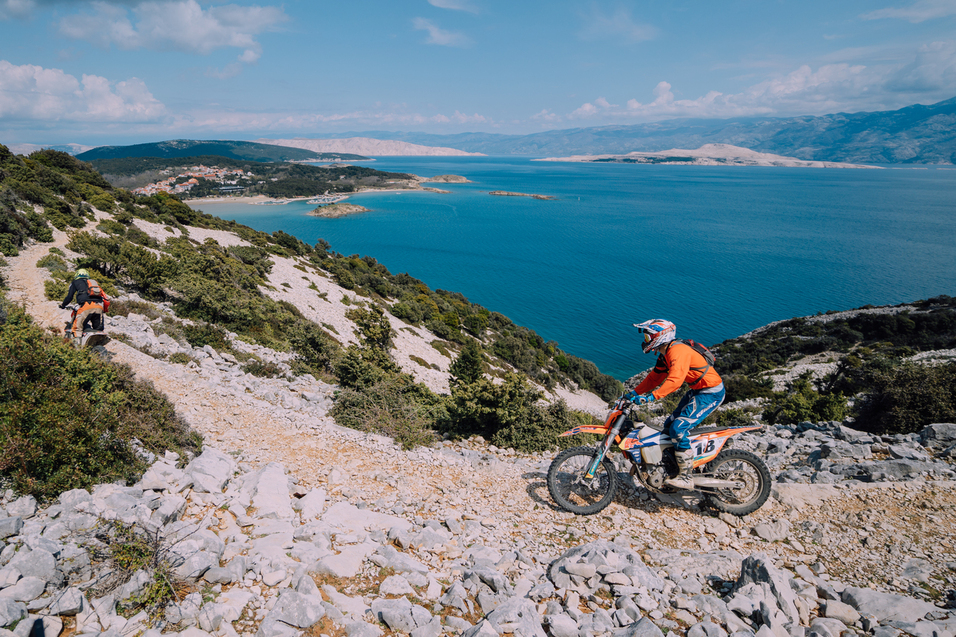
Ivan Sardi
It is important to emphasize that the trails on all four islands are cleaned and prepared every year. After the race, they are enjoyed by many walkers, runners, and cyclists. Most of the trails that were or are part of the race today are part of the island's tourist offer.
The race takes place from April 19 to 23, 2022.
Baška, 19.4.2022.
STAGE 1: Krk, 20.4.2022.
STAGE 2: Rab, 21.04.2022.
STAGE 3: Cres, 22.04.2022.
STAGE 4: Lošinj, 23.04.2022.
To follow the latest sports news in Croatia, follow TCN's dedicated page.


